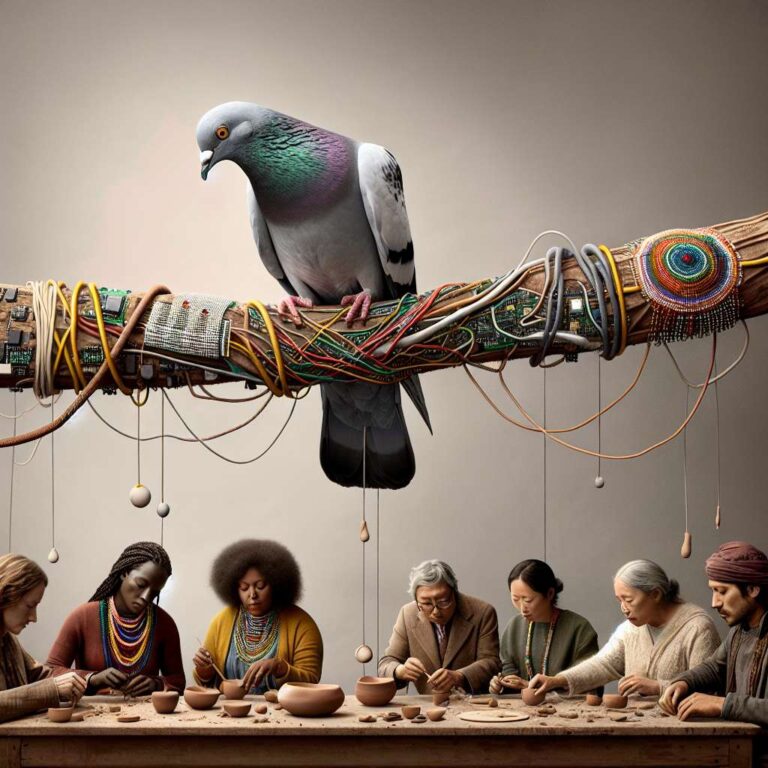This edition of the download traces surprising lineages and current debates in technology. One story revisits midcentury behaviorist research by b.f. skinner, whose experiments with pigeons helped formalize association as a learning mechanism. Skinner argued that linking actions to rewards or punishments is the basis of behavior across species. Decades after behaviorism faded from mainstream psychology, aspects of that approach resurfaced in computer science and seeded techniques that now underpin many modern artificial intelligence systems at companies such as Google and OpenAI. The piece appears in the newsletter´s forthcoming print issue on security.
Another feature centers on indigenous practitioners who refuse conventional models of data extraction. In many native american languages there is no single word for art; instead creators describe process, instruction and ceremony. A new generation of indigenous artists is applying that worldview to technology, favoring relationship-based systems over commodified datasets. Their work challenges assumptions about authorship, ownership and consent, and it reframes technical questions as matters of community stewardship rather than mere optimization.
The must-reads roundup compiles today’s notable stories: a safety update from Anthropic that can terminate harmful conversations as a last resort alongside a policy banning weapon development; executives urging staff to adopt artificial intelligence even while grappling with it themselves; concerns that cuts to nasa could imperil public health research; the rise of low-effort, high-return generative content on platforms; persistent difficulties using artificial intelligence in medical diagnosis; new risks from AI-augmented cybercrime; and industry shifts in battery manufacturing and media consumption. The list mixes long-form investigations with quick briefs to map what matters now.
There is also a reflective thread. An artist quoted in the newsletter describes allowing her likeness in an AI avatar as liberating rather than regrettable. And a final deep read asks whether generative models will measurably boost productivity and who stands to gain if they do. Lighter items close the issue, from nostalgia pieces to feel-good viral moments, all presented as part of a daily briefing on how technology touches culture and policy.

